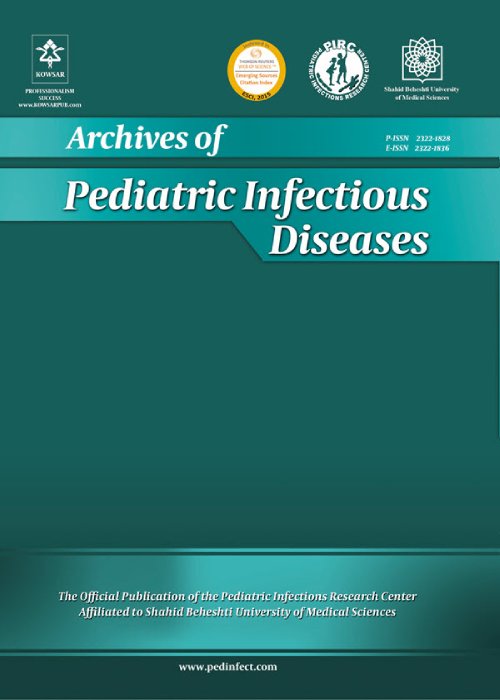Intestinal Carriage of Carbapenemase-Producing Enterobacteriaceae Members in Immunocompromised Children During COVID-19 Pandemic
Hospital-acquired infection with carbapenem-resistant Enterobacteriaceae (CRE) is a global concern. The administration of antibiotics among the infected and non-infected immunocompromised children with SARS-CoV-2 is associated with an increased risk of intestinal CRE colonization and bacteremia during hospitalization.
The present study aimed to detect the correlation between the intestinal colonization of carbapenemase encoding Enterobacteriaceae with SARS-CoV-2 infection and antibiotic prescription among immunocompromised children admitted to the oncology and Bone Marrow Transplantation (BMT) wards.
Stool samples were collected from the immunocompromised children, and the members of Enterobacteriaceae were isolated using standard microbiological laboratory methods. Carbapenem resistance isolates were initially characterized by the disc diffusion method according to CLSI 2021 and further confirmed by the PCR assay. SARS-CoV-2 infection was also recorded according to documented real-time PCR results.
In this study, 102 Enterobacteriaceae isolates were collected from the stool samples. The isolates were from Escherichia spp. (59/102, 57.8%), Klebsiella spp. (34/102, 33.3%), Enterobacter spp. (5/102, 4.9%), Citrobacter spp. (2/102, 1.9%), and Serratia spp. (2/102, 1.9%). The carbapenem resistance phenotype was detected among 42.37%, 73.52%, 40%, 50%, and 100%of Escherichia spp., Klebsiella spp., Enterobacter spp., Citrobacter spp., and Serratia spp., respectively. Moreover, blaOXA-48 (49.1%) and blaNDM-1 (29.4%), as well as blaVIM (19.6%) and blaKPC (17.6%) were common in the CRE isolates. SARS-CoV-2 infection was detected in 50% of the participants; however, it was confirmed in 65.45% (36/55) of the intestinal CRE carriers. The administration of antibiotics, mainly broad-spectrum antibiotics, had a significant correlation with the CRE colonization in both the infected and non-infected children with SARS-CoV-2 infection.
Regardless of the COVID-19 status, prolonged hospitalization and antibiotic prescription are major risk factors associated with the CRE intestinal colonization in immunocompromised children.
- حق عضویت دریافتی صرف حمایت از نشریات عضو و نگهداری، تکمیل و توسعه مگیران میشود.
- پرداخت حق اشتراک و دانلود مقالات اجازه بازنشر آن در سایر رسانههای چاپی و دیجیتال را به کاربر نمیدهد.



